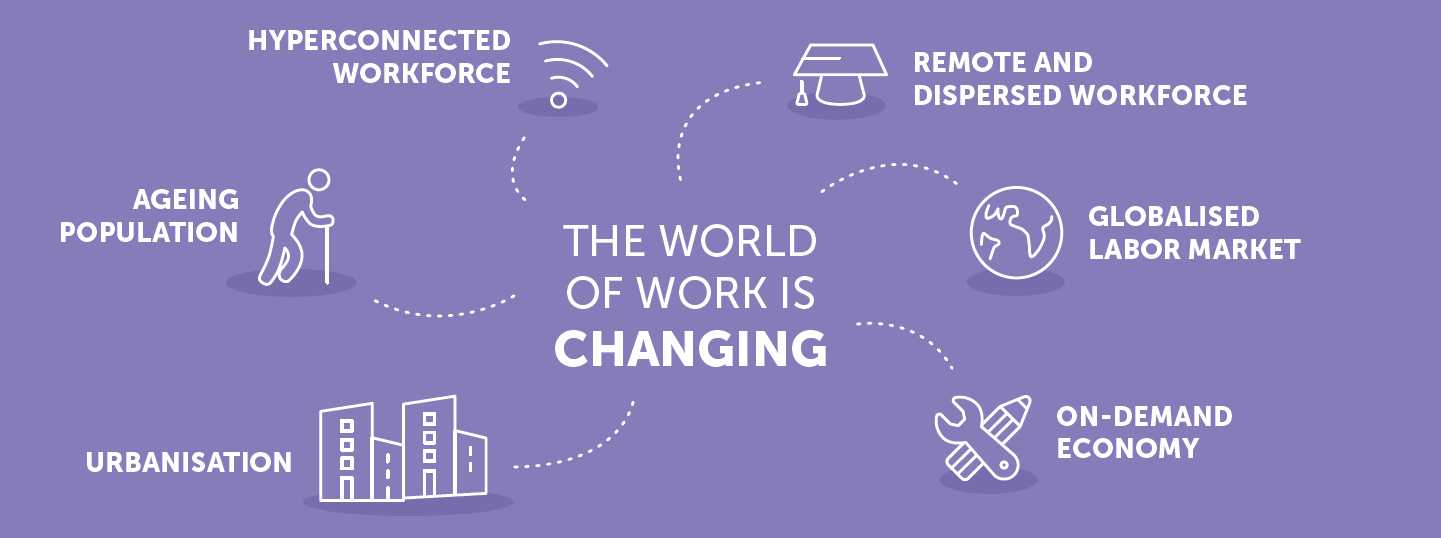Rapid technology changes, demographics, diversity, globalisation, climate change, new production models and the rise of the on-demand economy are just some of the structural shifts currently reshaping the world of work.
These new trends create challenges for our current labour laws, welfare schemes, education systems and tax regimes. Labour markets need to evolve to ensure that they remain open, inclusive and sustainable – and enable everyone to grow and prosper.
Policy-makers are responding to these vast challenges in several ways: securing lifelong learning, investing in better employment services and updating social protection schemes to better accommodate more frequent work transitions.
International organisations such as the International Labour Organisation (ILO) and the Organisation for Economic Cooperation and Development (OECD) have developed specific initiatives around the Future of Work to research, recommend and support the implementation of futureproof employment policies. In 2019, the ILO adopted the Centenary Declaration for the Future of Work to support its member states in ensuring economic changes are not to the detriment of work quality.

With labour markets becoming more dynamic, volatile and unpredictable and creating a growing number of transitions for individuals to navigate, people need support more than ever to gain work experience, find career guidance, and maintain and develop skills. Private employment services provide this support. They empower workers to get their next opportunity, reduce informality, promote inclusiveness and support agility for individuals, businesses and the economy.
The role of private employment services for labour market activation, transitions and inclusiveness is evidenced in the Social Impact Report of the World Employment Confederation, published annually. The sector also provides crucial access to training for millions of workers each year in order to ensure their future employability; and it works together with workers’ representatives, to deliver new forms of access to social protection to inadequately covered workers.
The World Employment Confederation and its members seek to play a leadership role in building futureproof labour markets. Yet, they need policy-makers to provide them with a solid regulatory framework including:
The private employment industry believes in “Social Innovation” as the way forward in reforming and re-inventing labour markets. Social innovation is defined as the implementation of new solutions for working, learning and social protection for the benefit of workers, employers and society in general.
The World Employment Confederation adopted a Manifesto entitled “No Future of Work without Social Innovation” which develops five sets of recommendations and clear calls for action. Explore the infographic below and read more on our page dedicated to Social Innovation.